1. Paul Harvey
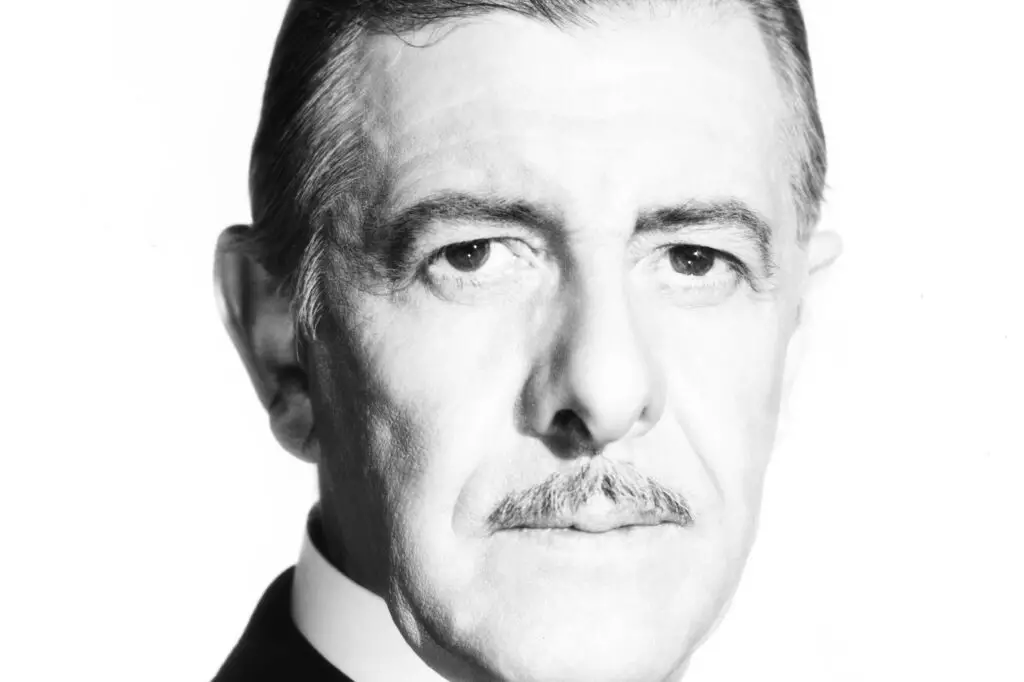
If you ever rode in the backseat of your parents’ car while the radio played softly, there’s a good chance you heard Paul Harvey’s distinct voice. His pauses, his cadence, that signature “And now you know… the rest of the story”—it was all uniquely his. Harvey mastered the art of storytelling on the radio, making even the most mundane headlines feel suspenseful. His daily news and commentary segments captivated millions for decades, especially during the ’50s through the ’90s. Somehow, without flashy graphics or a polished smile, he managed to become one of the most trusted voices in America says Britannica.
What made him so special wasn’t just his delivery, but his sincerity. He had a way of making listeners feel like he was talking just to them, like an old friend catching you up on the world. Whether it was farm reports, political commentary, or quirky human interest stories, he treated them all with the same thoughtful tone. You never needed to see his face—his voice told you everything you needed to know.
2. Casey Kasem
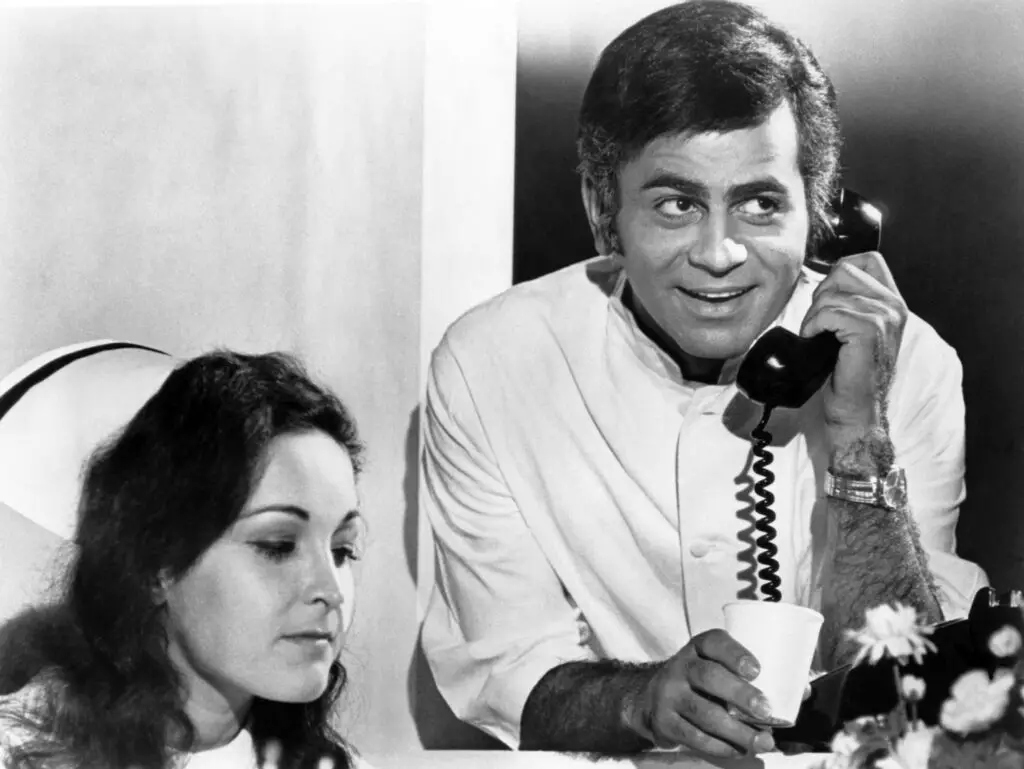
There was something magical about tuning in to American Top 40 every weekend. Casey Kasem’s voice wasn’t just pleasant—it was comforting. He wasn’t just reading off a list of songs; he was guiding you through the soundtrack of your week. His long-distance dedications were always heartfelt, and you could almost picture him nodding gently as he read each note shares ReMIND Magazine.
Even though he was the voice of Shaggy from Scooby-Doo, most fans knew him best from the countdown. He had a way of building suspense for the number one hit that made you stay in the car longer just to hear it. He brought music to life without ever needing to step into the spotlight himself. And his famous sign-off—“Keep your feet on the ground and keep reaching for the stars”—still echoes in many people’s minds adds PEOPLE.
3. Wolfman Jack
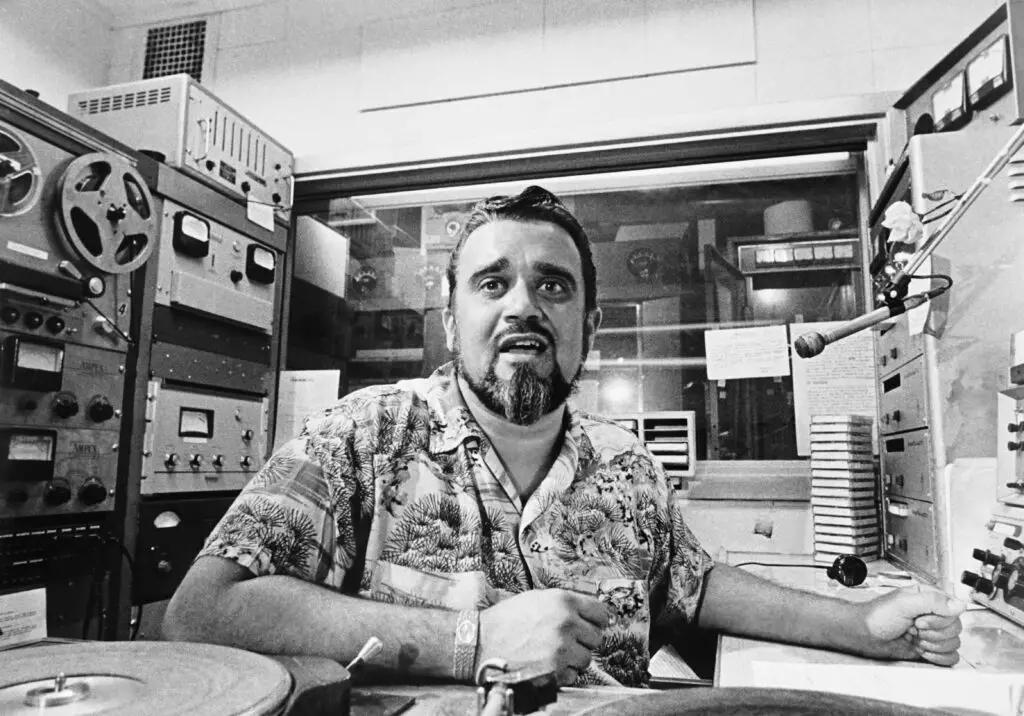
Before the internet, there was a whole generation that fell asleep with a radio under their pillow—and often, they were listening to Wolfman Jack. His raspy, growling voice came with wild energy that made late-night radio feel like a party. He was part DJ, part showman, and all mystery. You never quite knew what to expect from him, which made tuning in a thrill shares Radio Ink.
Wolfman Jack managed to become a legend despite rarely being seen in public. He popped up in movies and on TV now and then, but the magic was always in the voice. Kids from small towns to big cities knew his howl, and for many, he was their gateway to rock ‘n’ roll. He was one of the last radio personalities to truly create a character around his voice, and boy, did it work.
4. Jean Shepherd
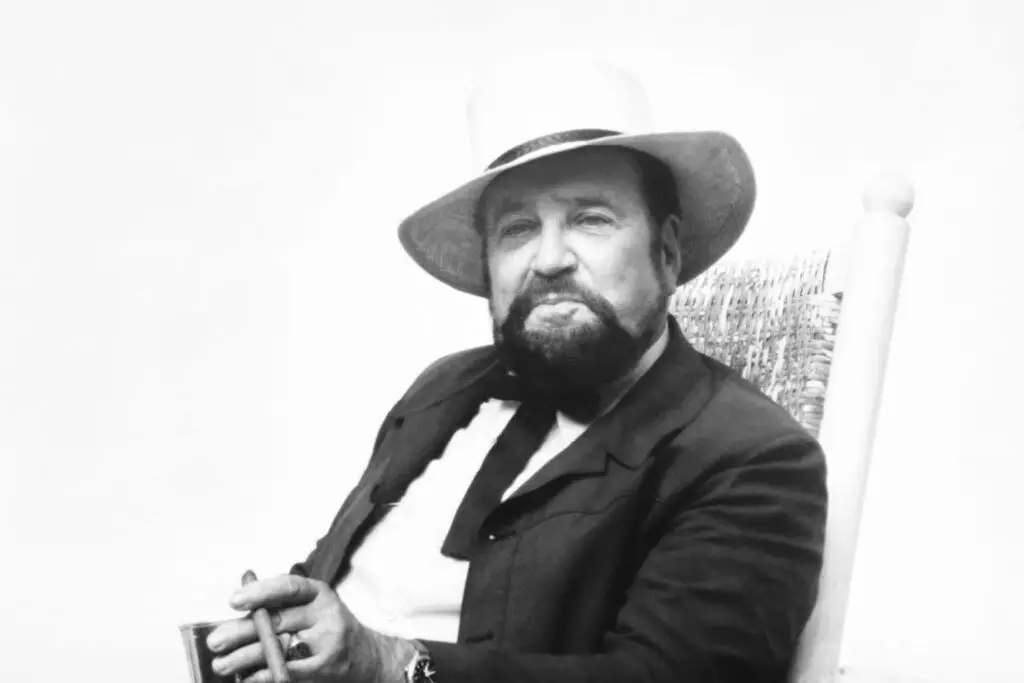
You might not recognize Jean Shepherd’s name right away, but if you’ve ever seen A Christmas Story, you’ve heard his voice. He narrated the film and actually wrote the story it’s based on—but long before that, he was spinning tales late at night on the radio. His shows were more like one-man monologues than typical broadcasts, full of nostalgia, humor, and perfectly timed tangents.
He didn’t need guests, sound effects, or flashy intros. Just give him a microphone, and he’d talk straight from the heart for 45 minutes. He connected with listeners in a deeply personal way, sharing stories of childhood, odd jobs, and mid-century America. People tuned in not because they knew what they’d get, but because they didn’t—and they trusted him to make it good.
5. Don Imus
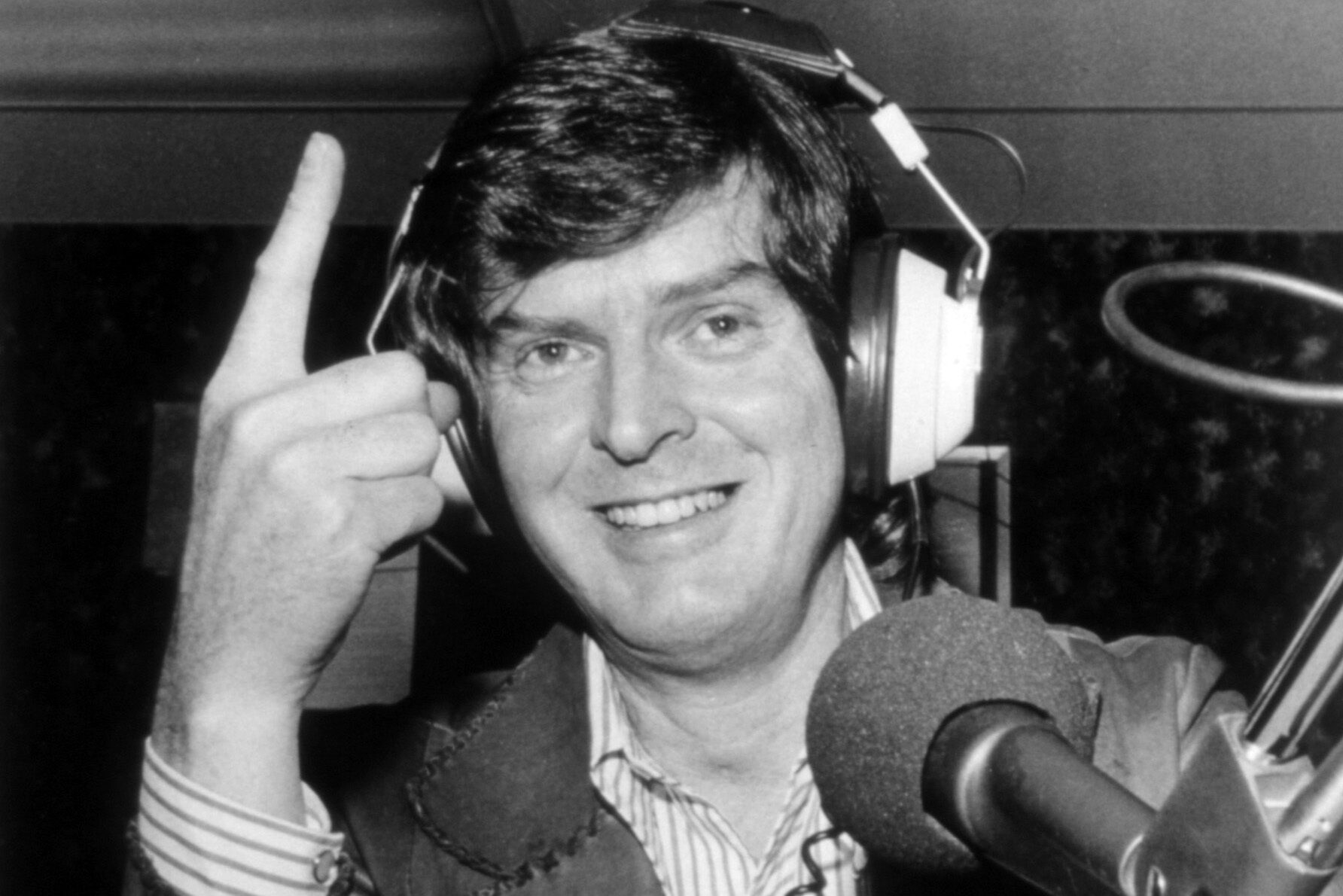
Don Imus didn’t sound like anyone else on the radio, and he didn’t try to. With his gravelly voice, irreverent humor, and sharp-tongued commentary, he became a major figure in morning radio during the ’70s and ’80s. Imus in the Morning wasn’t just a talk show—it was part satire, part news, part total chaos. He’d swing from interviewing senators to roasting pop culture, all before most people had finished their first cup of coffee.
Imus wasn’t always easy to like, and he knew it. But there was something magnetic about his unpredictable style and his refusal to play by the rules. He didn’t care if you disagreed with him—as long as you were listening. Despite the controversies, he built a legacy that proved just how powerful a voice could be, even when the face behind it stayed mostly in the shadows.
6. Larry King
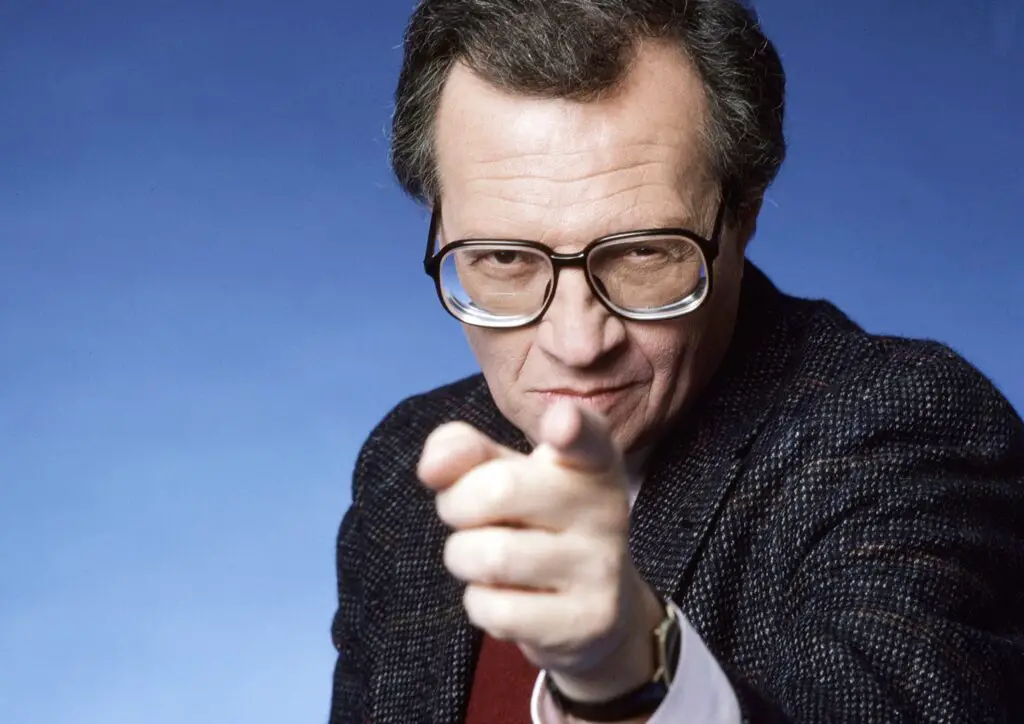
Before he became a CNN icon, Larry King ruled the radio waves. Starting out in Miami, he eventually launched The Larry King Show, a national overnight radio program where he interviewed guests and took live calls. His conversational style was relaxed and genuine, and he had a way of asking simple questions that led to surprising answers.
He didn’t rely on zingers or flashy production. Just curiosity and a deep respect for the people he talked to. Even before most listeners ever saw his trademark suspenders, they knew him as a steady, familiar voice. He made the night feel a little less lonely for folks driving trucks, working the night shift, or battling insomnia.
7. Barry Gray
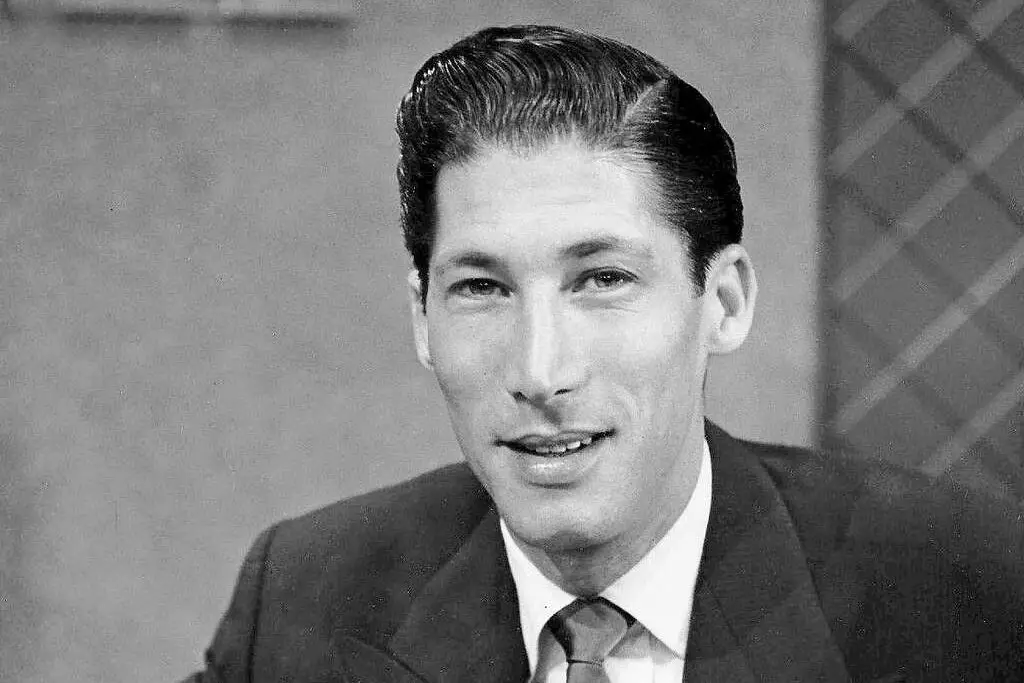
Barry Gray is often called the father of talk radio, and for good reason. Long before the format became a battleground for politics or celebrity gossip, he was just a guy with a microphone and a curious mind. In the ’40s and ’50s, he did something radical—he put callers on the air live. That simple decision changed the game, making radio feel like a real conversation instead of a lecture.
He’d talk to just about anyone, from politicians to entertainers to ordinary folks with strong opinions. His show was a little unpredictable and totally engaging. Barry didn’t rely on a gimmick—he just listened well and knew when to press and when to back off. He laid the groundwork for every talk host who came after him, all while remaining a voice more than a face.
8. Howard Stern
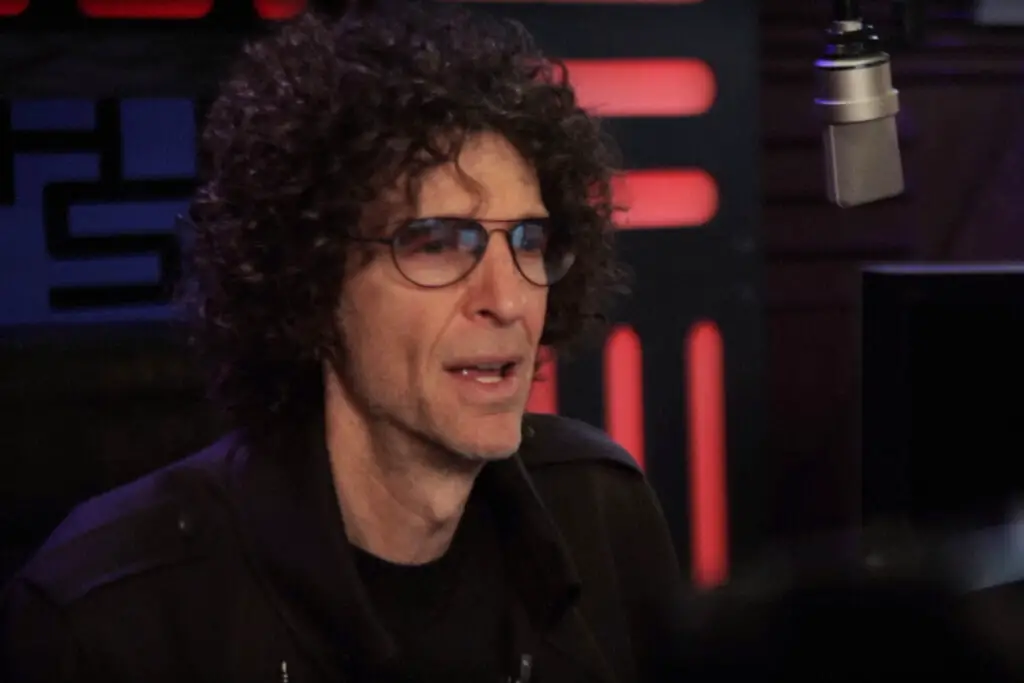
Howard Stern is probably the most polarizing name on this list, but there’s no denying his influence. His shock-jock persona changed radio forever, pushing boundaries and challenging the FCC on what could be said over the air. His morning show wasn’t just raunchy—it was unpredictable, unscripted, and completely different from anything else on the dial.
While he’s been on TV and in films, for most fans, he’s always been a voice. Stern’s gift wasn’t just in being outrageous, but in drawing out raw, honest moments from his guests. Whether you loved or hated him, you probably listened at some point. And chances are, he made you feel something—whether that was laughter, shock, or flat-out disbelief.
9. Garrison Keillor
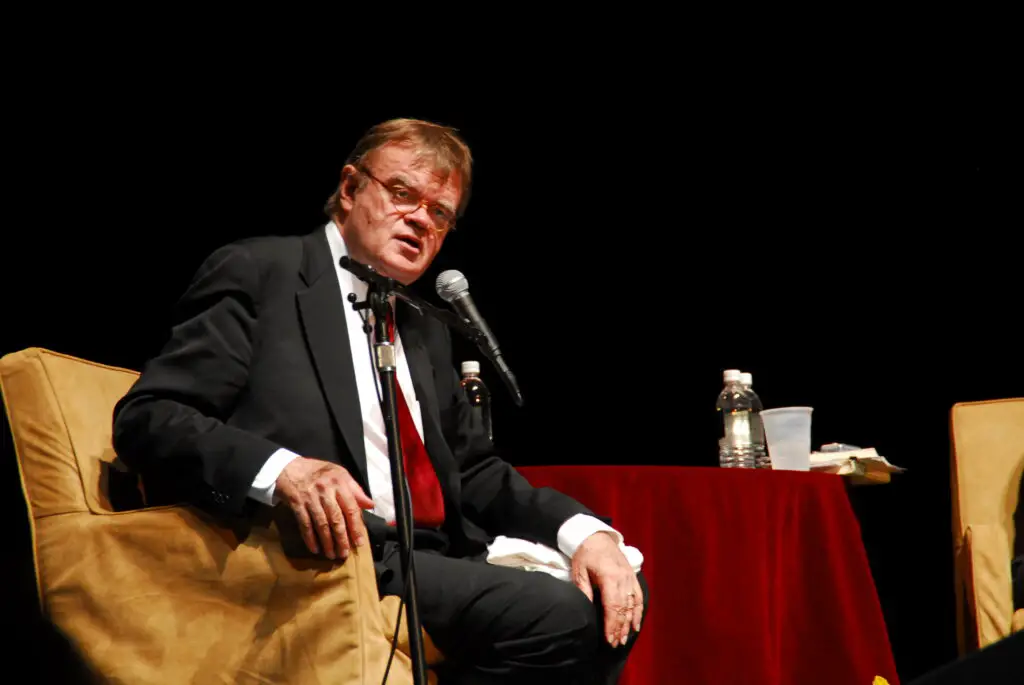
Garrison Keillor’s voice is like a warm blanket on a cold night. With A Prairie Home Companion, he built an entire fictional town—Lake Wobegon—where “all the women are strong, all the men are good-looking, and all the children are above average.” His blend of dry humor and gentle storytelling created a show that felt like sitting around a Midwestern fireplace.
He wasn’t flashy, and he didn’t need to be. His stories were full of quiet wisdom and homespun charm. People tuned in for the comfort of familiarity, to hear about the same quirky characters week after week. His face might not have been well-known, but that voice was unmistakable.
10. Rush Limbaugh
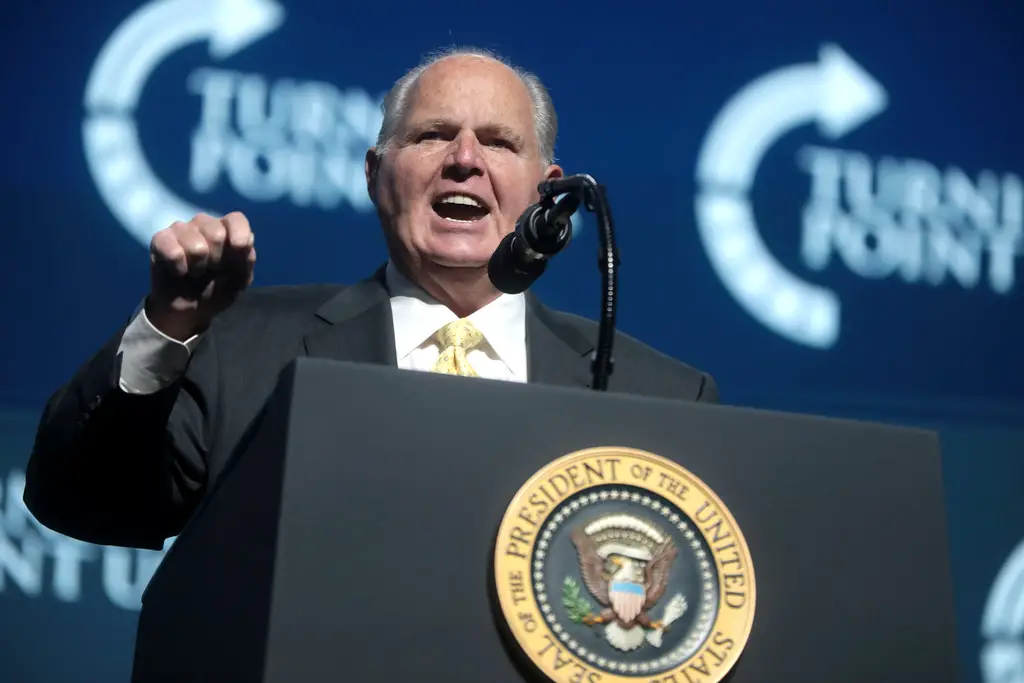
Whether you agreed with him or not, Rush Limbaugh built a radio empire. Starting in the ’80s, his conservative talk show drew in millions of loyal listeners. He was known for his strong opinions, controversial statements, and sharp wit. You could count on him to stir the pot and dominate headlines.
But beyond politics, Limbaugh knew how to work a microphone. He understood pacing, tone, and drama, and he used all of it to keep listeners engaged. His fans felt like they were part of a movement, not just a radio show. He shaped political talk radio more than anyone else, all without needing to be seen.
11. Big Boy
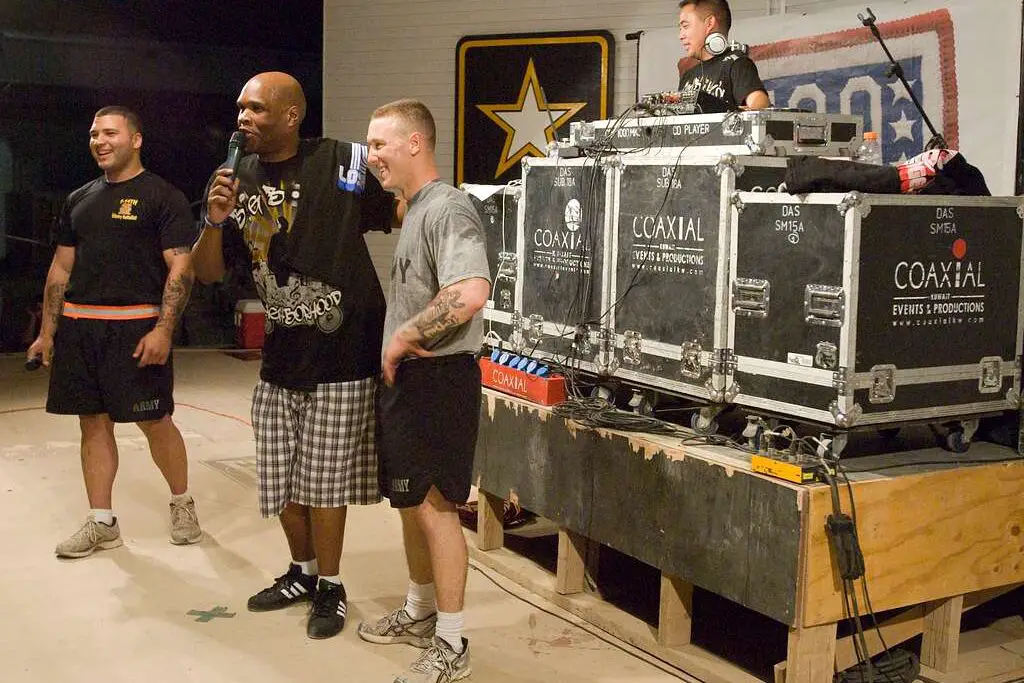
Before he was a household name in hip-hop radio, Big Boy was just a kid with a dream in Los Angeles. He started as a bodyguard and moved into radio, eventually hosting Big Boy’s Neighborhood, which became a staple for West Coast rap fans. His friendly vibe and humor made artists open up in a way few other hosts could manage.
Big Boy never relied on shock value or controversy. Instead, he created a space where artists could just be themselves. His influence goes far beyond the studio—he helped shape what hip-hop radio sounded like in the ’90s and 2000s. And even though he’s stepped into TV more recently, it’s his voice that built the brand.
12. Bob Grant
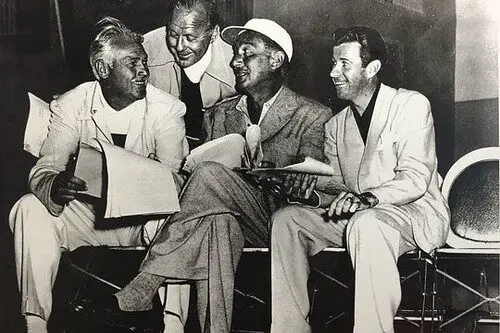
In the world of talk radio, Bob Grant was a pioneer. He was loud, opinionated, and didn’t mince words, which earned him both loyal fans and fierce critics. Starting in the ’70s, he became known for his blunt commentary and heated exchanges with callers. Love him or hate him, he made radio feel alive.
Grant paved the way for many of today’s political radio hosts. He brought a sense of urgency to the airwaves, making listeners feel like they had to call in and be heard. His face wasn’t the draw—it was that no-nonsense, confrontational style that kept people tuning in. He knew how to keep a conversation going, even when it got uncomfortable.
13. Tom Joyner
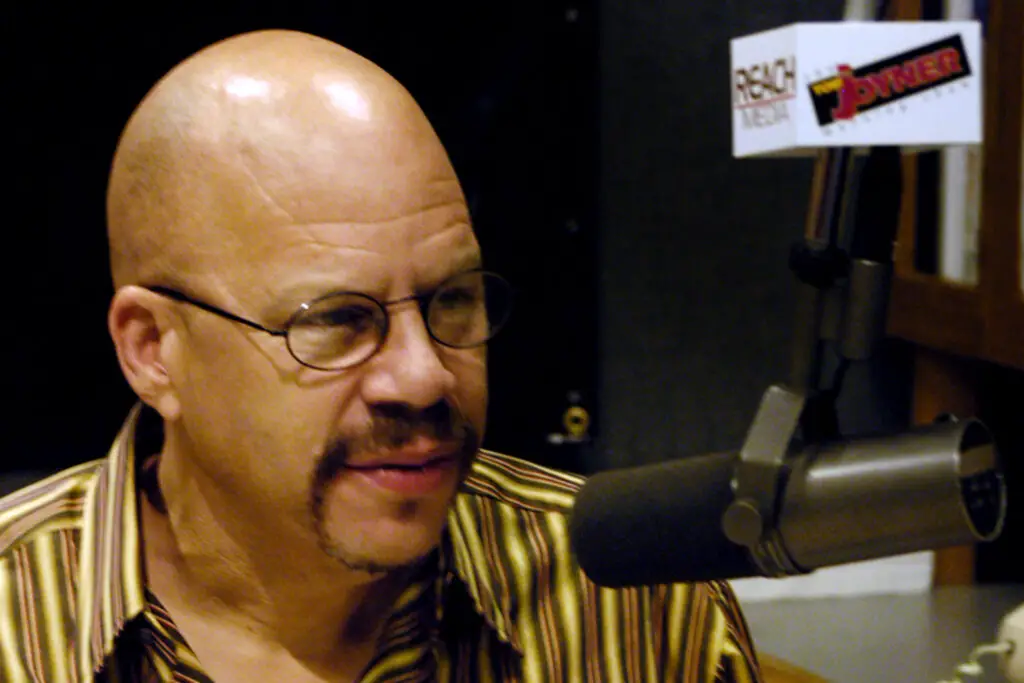
Tom Joyner brought soul, humor, and activism to morning radio. Known as the “Fly Jock” because he once flew between Dallas and Chicago every day to host two shows, his work ethic was unmatched. The Tom Joyner Morning Show mixed music, community news, and interviews with a whole lot of laughter.
Joyner didn’t just entertain—he educated. He used his platform to promote historically Black colleges, health awareness, and voter participation. His deep connection to his community made him more than just a voice. Even if you never saw him, you felt him.
14. Ira Glass
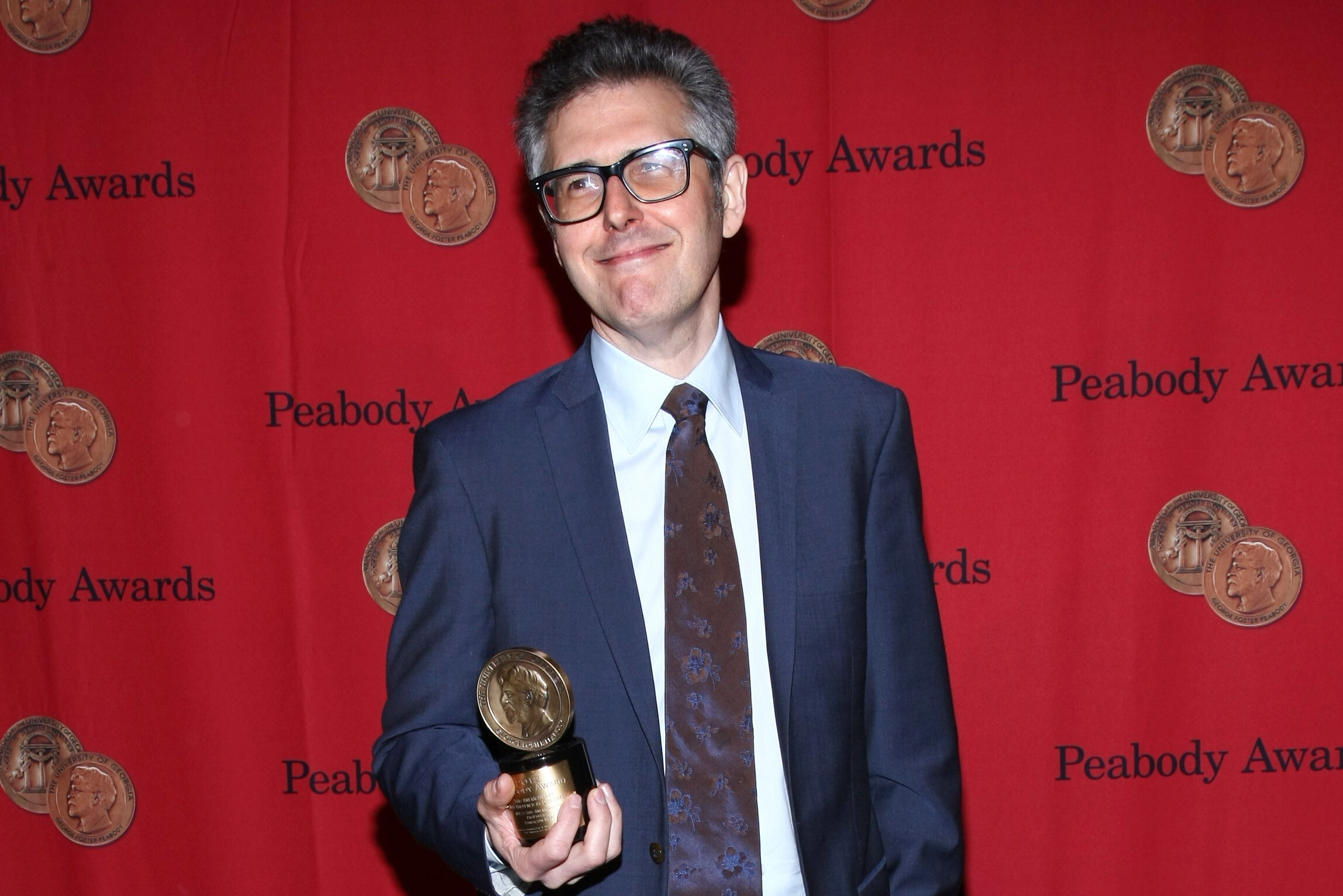
Ira Glass is the quiet force behind This American Life, the storytelling show that turned public radio into an art form. His soft, almost hesitant voice became instantly recognizable to anyone who ever tuned in on a Sunday afternoon. He took stories that might seem small—someone’s job, a failed relationship, an awkward moment—and made them feel huge.
He wasn’t flashy, and he certainly wasn’t trying to be famous. Glass focused on people, on the strange, beautiful, and difficult corners of everyday life. His voice guided you through each episode with compassion and curiosity. And he proved you don’t need a face to tell a powerful story—you just need to listen.
